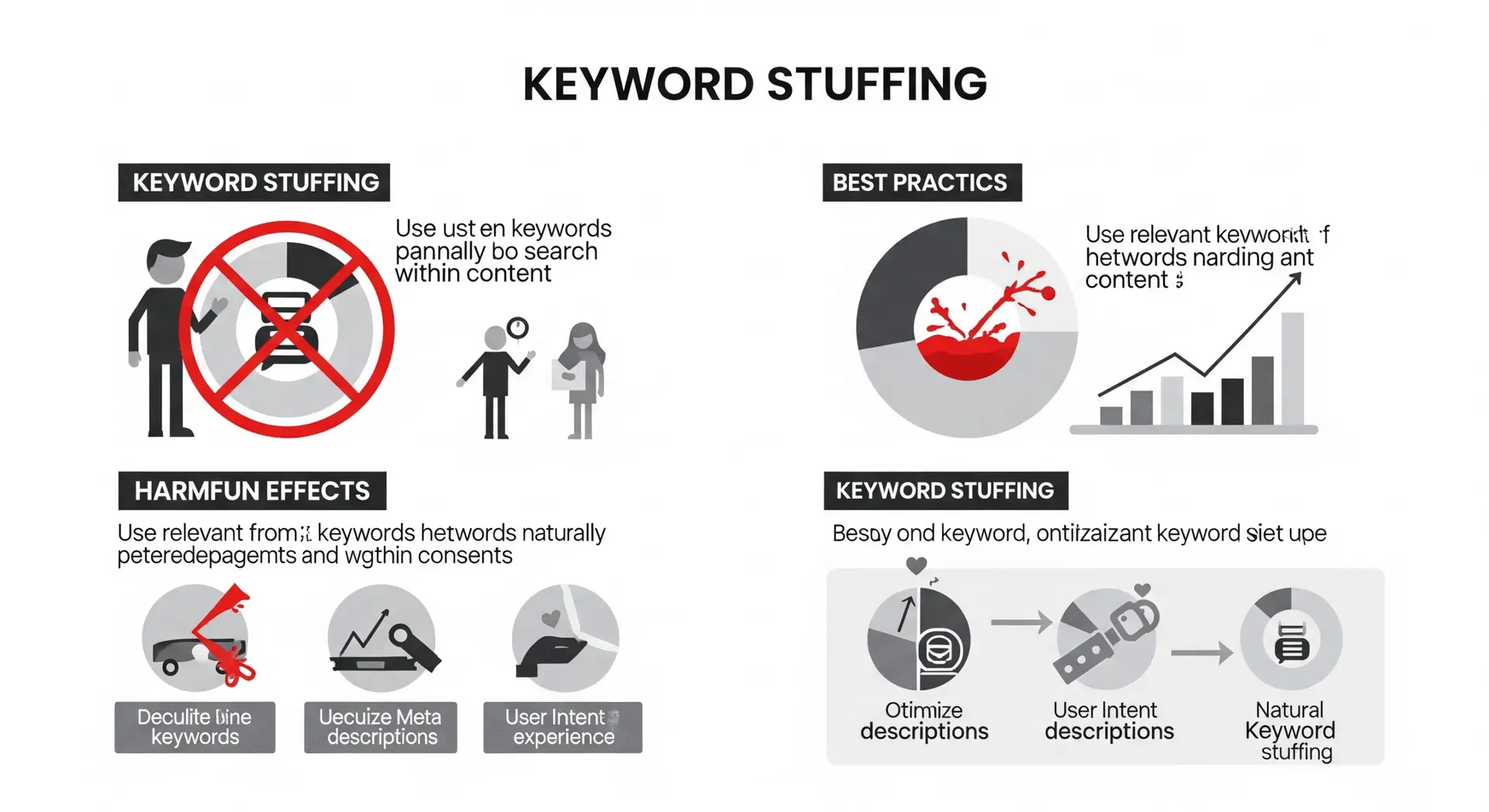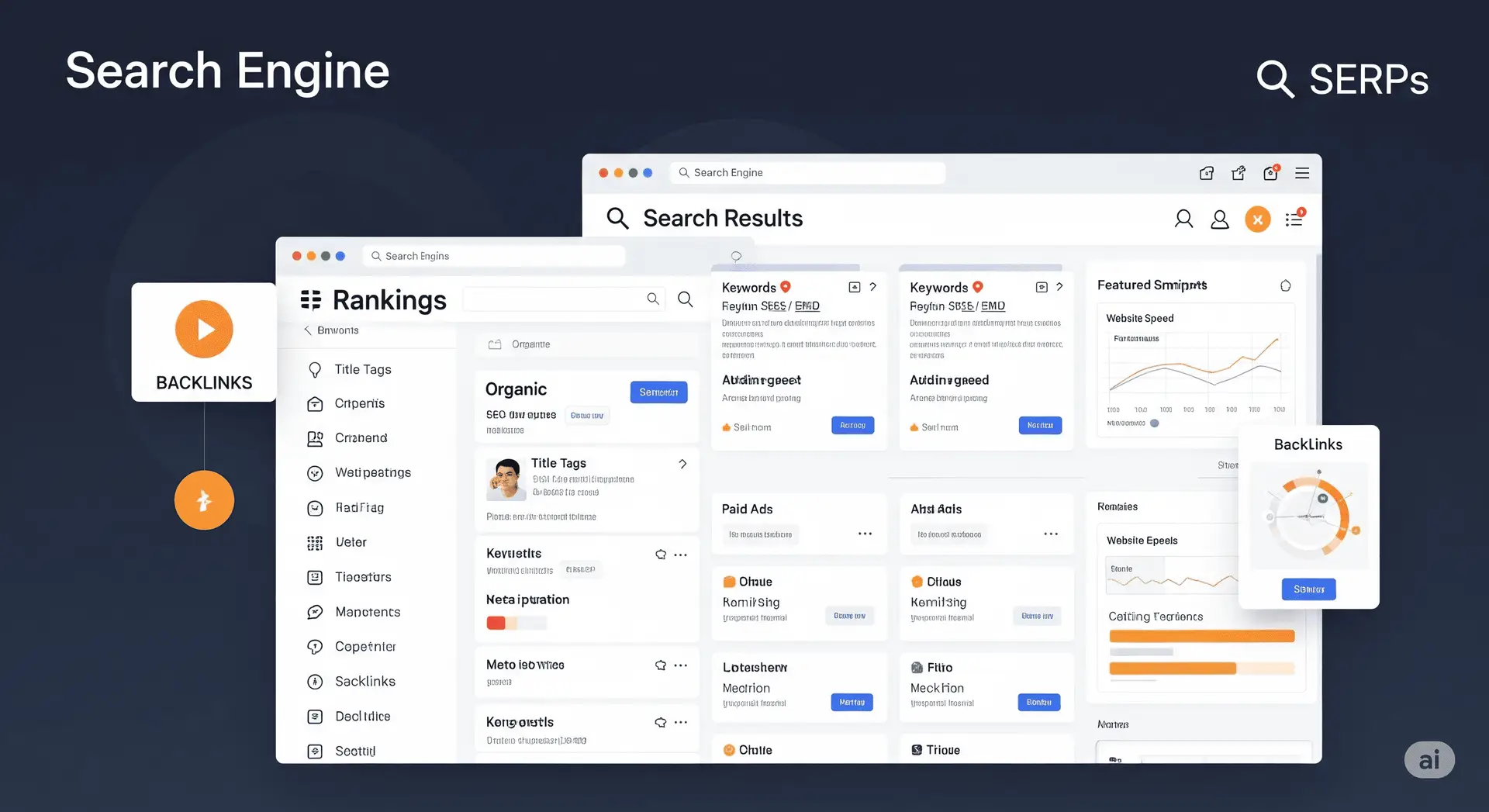
Search Engine Optimization (SEO) is constantly evolving, driven by updates to search engine algorithms, user behavior, and advancements in artificial intelligence. One practice that has long been part of SEO history is keyword stuffing — the overuse of keywords in a web page to try and manipulate search engine rankings.
But in 2025, does keyword stuffing still work? Should SEO professionals or businesses consider using it? In this blog, we’ll dive into what keyword stuffing really is, whether it still ranks, and its pros and cons in the current digital landscape.
What is Keyword Stuffing?
Keyword stuffing is the practice of excessively loading a webpage with a specific keyword or keyphrase to manipulate a site’s ranking in Google and other search engines. This can be done in visible content, meta tags, or even hidden text.
Examples of keyword stuffing:
-
“Buy shoes online India. If you want to buy shoes online in India, the best way to buy shoes online India is through our buy shoes online India website.”
-
Repeating the same keyword or slight variations of it in unnatural, forced ways.
Is Keyword Stuffing Still Ranking in 2025?
Short answer: No — at least not in the long run.
Why Not?
Modern search engines like Google (with its AI-powered algorithms like BERT, MUM, and Gemini) and Bing (powered by GPT) are now capable of understanding context, semantic intent, and natural language. These algorithms prioritize user experience over keyword density.
In fact, stuffing keywords in 2025 can:
-
Trigger spam filters
-
Reduce user engagement
-
Hurt trustworthiness and readability
-
Lead to penalties or ranking drops
That said, some low-competition niches or temporary rank gains can still happen using keyword stuffing. However, such gains are usually unsustainable.
Pros of Keyword Stuffing (2025 Perspective)
While not recommended, let’s examine why some still attempt it:
1. Quick Rank Manipulation (Temporary)
For newly launched websites in uncompetitive markets, keyword stuffing might result in a temporary SERP boost until algorithms catch on.
2. Exact-Match Keyword Targeting
Some SEOs argue that exact-match targeting through repetition ensures search engines understand the page’s intent. However, this is better achieved through semantic SEO now.
3. Content Generation at Scale
For black-hat marketers using AI or automated tools to publish thousands of pages daily, keyword stuffing can be a “volume-based tactic” to test and see what sticks.
Cons of Keyword Stuffing in 2025
The drawbacks heavily outweigh the benefits. Here’s why keyword stuffing is largely obsolete:
1. Google Penalties
Google’s Web Spam Team and its Helpful Content System penalize pages that appear to be written more for search engines than for people.
2. Poor User Experience
Readers are turned off by repetitive, unnatural language. It increases bounce rates and lowers session duration — both negative SEO signals.
3. Lower Conversions
Even if you drive traffic, the cluttered content won’t convert visitors into leads, subscribers, or customers.
4. De-indexing Risk
Extreme cases of keyword stuffing can result in manual actions by Google or even de-indexing of your pages.
5. Bad Reputation
Brands using keyword-stuffed content risk losing credibility. Your audience might perceive your content as spammy or low quality.
Modern Alternatives to Keyword Stuffing
Rather than stuffing, the focus in 2025 should be on:
- Semantic SEO
Use LSI keywords, synonyms, and related terms to build topical authority.
- Content Clusters
Organize content around pillar pages and topic clusters for better structure and depth.
- AI-Driven Content Optimization
Tools like Surfer SEO, Frase, Clearscope, or MarketMuse help you include relevant terms naturally without stuffing.
- Natural Language Writing
With Google’s algorithms getting smarter, it’s best to write like a human, for humans.
- Focus on E-E-A-T
Demonstrate Experience, Expertise, Authoritativeness, and Trustworthiness in your content — especially for YMYL (Your Money or Your Life) topics.
How to Know If You’re Stuffing Keywords
Ask yourself:
-
Does the keyword appear unnaturally often?
-
Are users benefiting from the repeated keyword?
-
Does it affect the flow or readability of the content?
A simple rule: If it sounds robotic or awkward when read aloud, it’s probably keyword stuffing.
Final Verdict: Avoid Keyword Stuffing in 2025
While keyword stuffing may have worked in the past — and still occasionally ranks in low-competition or black-hat SEO setups — it’s not a viable or sustainable strategy in 2025.
Instead, SEO success now lies in:
-
High-quality, helpful content
-
User-focused writing
-
Strategic on-page optimization
-
Technical SEO hygiene
-
Authoritative backlinks and topical relevance
If you’re serious about long-term SEO growth, ditch keyword stuffing and embrace ethical, user-first SEO.
Need Help With Ethical SEO?
If you’re looking to grow your rankings without risking penalties, work with a trusted SEO partner. At SearchSERP, we specialize in Quantum SEO, AI-driven optimization, and technical SEO strategies that deliver real, sustainable results in 2025.
📞 Call us: +91 94329 22367
📍 Location: Kolkata, India
🌐 Website: SearchSERP





